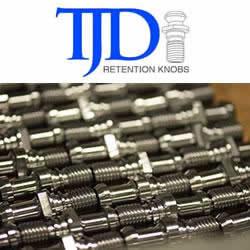Essentium Independent Research Reveals Additive Manufacturing is Now a Serial Production Process
The fourth annual study reveals that the use of large-scale AM has more than doubled in the past year for 86 percent of manufacturing companies.
Austin, Texas, November 17, 2021 - Essentium®, Inc. , a leading innovator of industrial additive manufacturing (AM) solutions, today announced the first in a series of findings from independent global research on the current and future use of industrial 3D printing. The fourth annual study reveals that the use of large-scale AM has more than doubled in the past year for 86 percent of manufacturing companies.
The survey results show that AM is here to stay and has evolved beyond prototyping to become an essential component in the large-scale production of functional parts. The number of companies that have shifted to using AM for full-scale production runs of hundreds of thousands of parts has increased from 14 percent in 2020 to 24 percent in 2021, and only 1 percent use 3D printing for less than 10 parts compared to 17 percent four years ago.
The survey found that the most important drivers for a company's adoption of 3D printing for large scale production were its ability to:
• Improve part performance [55%]
• Increase design freedom [45%]
• Overcome supply chain issues [30%]
• Lower production costs [24%]
Important changes have occurred in the past two years that have encouraged the adoption of 3D printing for large-scale production. These include gaining expertise in 3D printing technology and processes [47%], the business case for AM has improved [42%], the cost of 3D printing materials has come down [40%], and 3D printing technology has improved scalability [39%].
The majority [96 percent] of respondents think that the manufacturing industry could save billions of dollars in production costs as 3D printing technology matures. However, as they think about future-proofing their investment in 3D printing at scale, the key strategic considerations include:
• 3D printing will integrate with existing machinery and work in practice on the factory floor [50%]
• Designers and engineers acquire specific "design for 3D printing" knowledge and techniques [39%]
• Finance teams develop a deeper understanding of cost and value implications [38%]
• Long-term availability of materials for parts and tooling [33%]
Said Blake Teipel, Ph.D., CEO of Essentium: "Additive technology has matured to the point where manufacturers around the world can digitally print parts as they need them at speed, scale, and economics that challenge traditional methods. As AM is set to transform global manufacturing and enable more distributed and resilient value chains, we are working with our customers and partners to ensure they can reap the rewards of this new manufacturing era."
About Essentium
Essentium, Inc. provides industrial 3D printing solutions that are disrupting traditional manufacturing processes by bringing product strength and production speed together, at scale, with a no-compromise engineering material set. Essentium manufactures and delivers innovative industrial 3D printers and materials, enabling the world's top manufacturers to bridge the gap between 3D printing and machining and embrace the future of additive manufacturing. Essentium, Inc. is AS9100D certified and ITAR registered.
Featured Product

T.J. Davies' Retention Knobs
Our retention knobs are manufactured above international standards or to machine builder specifications. Retention knobs are manufactured utilizing AMS-6274/AISI-8620 alloy steel drawn in the United States. Threads are single-pointed on our lathes while manufacturing all other retention knob features to ensure high concentricity. Our process ensures that our threads are balanced (lead in/lead out at 180 degrees.) Each retention knob is carburized (hardened) to 58-62HRC, and case depth is .020-.030. Core hardness 40HRC. Each retention knob is coated utilizing a hot black oxide coating to military specifications. Our retention knobs are 100% covered in black oxide to prevent rust. All retention knob surfaces (not just mating surfaces) have a precision finish of 32 RMA micro or better: ISO grade 6N. Each retention knob is magnetic particle tested and tested at 2.5 times the pulling force of the drawbar. Certifications are maintained for each step in the manufacturing process for traceability.
